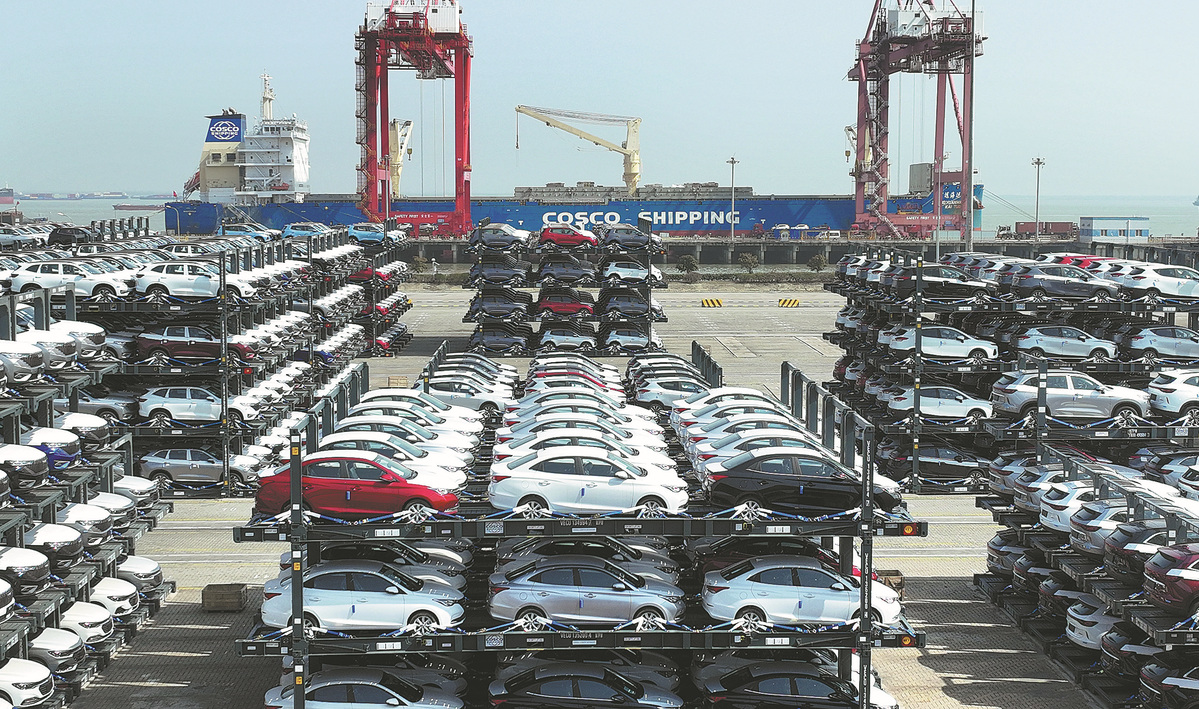Discounts fail to help drive EV sales in US
Besides price and battery concerns, country has fewer charging stations


People in the United States haven't revved up their enthusiasm for electric vehicles despite plenty of dealerships nationwide offering steep discounts. Meanwhile, in China, EV sales are soaring.
The drop in demand for EVs in the US comes after international automakers bet big and invested billions of dollars over the past few years in EV fleets.
In 2023, EV sales grew nearly 50 percent, according to data from Motor Intelligence, a vehicle sales data provider in the US. In the first six months of this year, growth increased by just 6.8 percent as consumer interest waned.
Richard, who declined to give his surname, is a buyer for Major World, a large auto dealership in Long Island City, Queens, New York, which sells new and used cars, EVs, trucks and SUVs.
He told China Daily: "We bought a lot of EVs that go toward the taxi and limousine people, but most people don't come in looking for (EVs); they prefer other non-EV cars."
EVs at the dealership range in price from $14,000 to $17,000 for a small Chevrolet Bolt model to $19,000 to $22,000 for larger 2022 and 2023 models. Newer EV models range in sticker price from $40,000 to $50,000.
Richard believes consumers will respond to lower-priced EVs when the automobiles have a longer battery life.
"If you don't have that battery that will give you the distance, customers will be slow to buy."
Consumer interest in buying EVs and hybrids is vastly different in China, where sales sped past internal-combustion-engine cars for the first time last month.
About 51 percent of all vehicle sales in July consisted of EVs and hybrids, according to data from the China Passenger Car Association.
At least 878,000 EVs and hybrids were sold in July, an increase of 37 percent over the same period last year. Conventional car sales fell by 26 percent to 840,000, the association said.
China exported 376,000 cars worldwide in July, up 20 percent on 2023, according to the car association.
In May, US President Joe Biden's administration imposed 100 percent tariffs on EVs and batteries made in China. The tariffs essentially cut off the imports of Chinese cars.
Political consideration
While the White House has advocated for clean energy, there also is a political consideration of importing cheaper vehicles.
In the US, besides the cost of EVs, battery concerns and the tariffs, which went into effect on Aug 1, there is a lack of charging stations.
There were approximately 61,000 such stations in the US as of February, according to the Pew Research Center.
California has 43,780 charging stations, the highest number of individual public charging ports, for the 1.2 million electric vehicles registered by the state's residents.
Nationwide, rural areas have even fewer charging stations. The 2022 Inflation Reduction Act gave tax credits to incentivize the installation of EV-charging stations outside urban areas.
In contrast, China has invested heavily in EV infrastructure. By the end of June, the total number of charging piles in China reached 10.24 million units, according to the National Energy Administration.
The falling demand for battery-powered cars and trucks has left US car dealers with too much stock as they get ready to roll out the new 2025 models this fall.
In June, dealerships had on average 125 days of supply of EVs, according to figures from Cox Automotive; they usually have around 60 days. The dealers are also selling many EVs at a loss and offering finance deals.
Agencies contributed to this story.
































